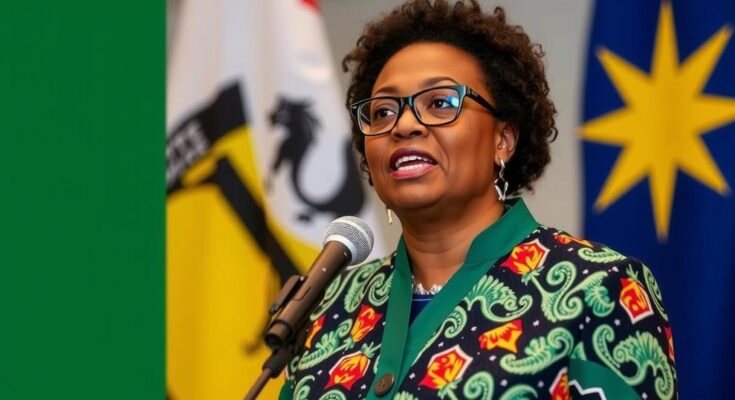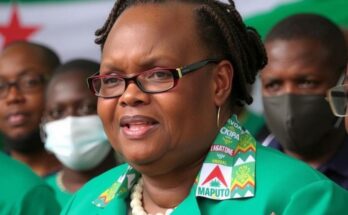Namibia elected its first female leader, Vice President Netumbo Nandi-Ndaitwah, with 57% of the vote. Her victory comes as the SWAPO party maintains its long-standing dominance in Namibian politics. The election faced challenges, including technical issues and opposition claims of disenfranchisement, prompting calls for legal disputes over the results.
Namibia has made history by electing its first female leader, with Vice President Netumbo Nandi-Ndaitwah emerging victorious in last week’s presidential election. Announced on Tuesday, her victory marks a significant milestone for the nation’s political landscape, as she secured 57% of the vote under the longstanding governance of the SWAPO party, which has maintained power since the country’s independence from apartheid South Africa in 1990. Despite technical challenges during the election, such as ballot shortages, the ruling party successfully retained its majority in the parliamentary elections, ensuring its continued influence in Namibian politics.
Netumbo Nandi-Ndaitwah, age 72, was previously a member of the underground movement for Namibia’s independence in the 1970s and was promoted to the role of Vice President following the passing of President Hage Geingob. She will assume the presidency as the fifth leader of Namibia. The SWAPO party celebrated her win on social media, declaring, “SWAPO Wins. Netumbo Wins. Namibia Wins. Now Hard Work.” However, opposition parties have expressed dissatisfaction with the election outcomes, citing the need for a legal challenge due to alleged electoral irregularities that they claim disenfranchised voters.
The Independent Patriots for Change, with candidate Panduleni Itula, secured 25% of the votes and expressed intentions to contest the election results in court. The election’s integrity has come under scrutiny as opposition parties accused the Electoral Commission of Namibia of failing to provide a fair voting process. Despite these challenges, Namibia is recognized as one of Africa’s more stable democracies, with a population of approximately 3 million in a country that is more than twice the size of Germany.
The recent presidential election in Namibia signifies a historic transition as the nation elects its first female leader, Vice President Netumbo Nandi-Ndaitwah. Her victory comes amidst the backdrop of a political landscape dominated by the SWAPO party for 34 years, following independence from apartheid rule. The election faced several logistical issues, prompting challenges from opposition parties regarding its legitimacy, which reflects ongoing tensions and dynamics within Namibian politics.
In conclusion, Namibia’s election of Netumbo Nandi-Ndaitwah as its first female president represents a landmark achievement for gender representation in leadership roles. Nonetheless, the electoral process encountered significant challenges that could impact the government’s legitimacy moving forward. As the country navigates this new chapter, the response from opposition parties will be crucial in shaping Namibia’s political future.
Original Source: abcnews.go.com




